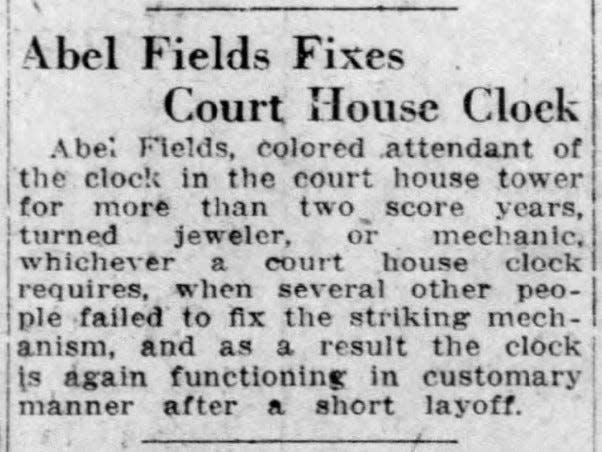Abel Fields, one of Lafayette's earliest Black entrepreneurs
Editor's note: To celebrate Black History Month, this is the first of 29 briefs about prominent Black community members in Tippecanoe County.
LAFAYETTE, Ind. — The hope of economic betterment encouraged a wave of new migrants to resettle in Indiana after the Civil War. With little resources after generations of enslavement, most Black migrants came from the nearby states of Kentucky and Tennessee.
Abel Fields (1850-1928) was born in Owensburg, Kentucky, and as a child, Fields was raised on the plantation. When the owner of the plantation died, in order to settle the estate, the heirs sold all of the enslaved persons and consequently broke up Fields’ family of 12 siblings. However, in 1881 Fields reunited with his older brother, John, who had moved to Lafayette in 1869.

During his time in Lafayette, Fields was lauded for his entrepreneurial efforts according to 1889 Lafayette Journal articles. The Journal praised his “enterprise, frugality and honesty.” Fields came to Lafayette as a poor man, but through hard work, he amassed enough money to rent a storeroom and purchase a stock of groceries. Early on he relied on cash-only business, and kept a good patronage through courteous and honest dealings.
In 1883 he purchased property on Spencer Street in the North-End of Lafayette. He operated this grocery business for nearly 40 years.

The Lafayette community also knew Fields as the official and faithful winder of the Tippecanoe County Court House clock for over 25 years. At the age of 78, Fields returned to his Kentucky home and died there in September 1928.
This article originally appeared on Lafayette Journal & Courier: Abel Fields, one of Lafayette's earliest Black entrepreneurs

